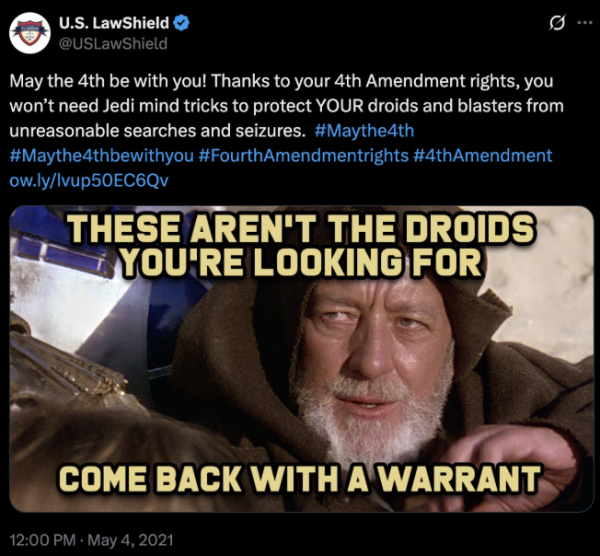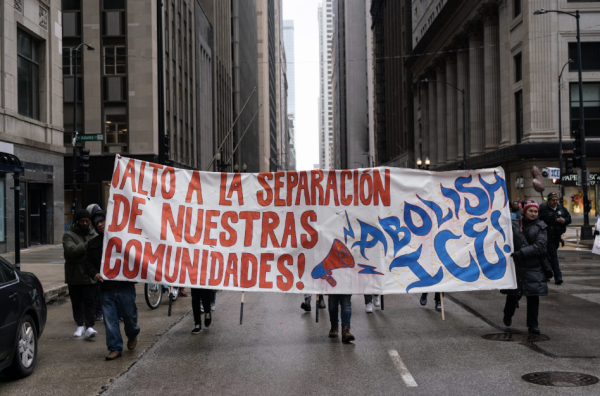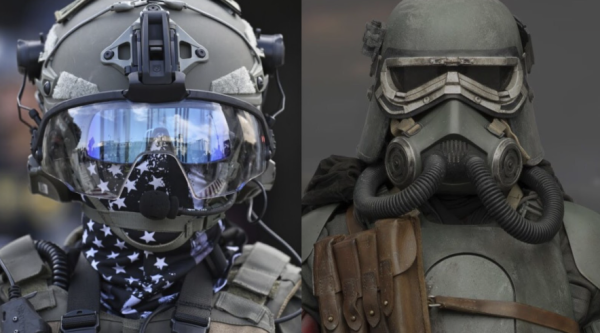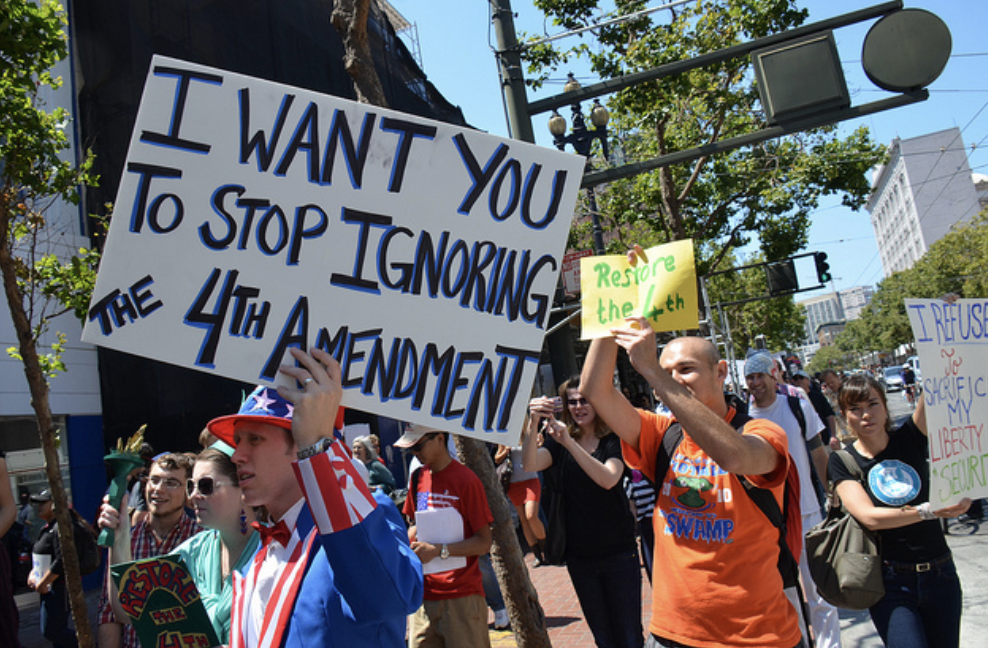On May 4th, 2021, the U.S. Law Shield tweeted, “May the 4th be with you! Thanks to your Fourth Amendment rights, you won’t need Jedi mind tricks to protect YOUR droids and blasters from unreasonable searches and seizures.” Wait, what exactly are those Fourth Amendment rights?

Ratified in 1791, the Fourth Amendment has two key clauses: the Reasonableness Clause, which prohibits “unreasonable searches and seizures,” and the Warrant Clause, which requires the federal agents to obtain warrants based on probable cause. Together, the two clauses form one of the cornerstones of American privacy and freedom from government intrusion.
Yet just last month, the Supreme Court blew a hole through the Fourth Amendment by greenlighting roving patrols in Los Angeles. In NOEM v. Vasquez, the Court ruled that Immigration and Customs Enforcement (ICE) agents may stop, search, or detain individuals based on skin color, language, accent, or even occupation. An L.A. Times column even put it bluntly: “Brown people, speaking brown languages, hanging out with other brown people, and doing brown people things like working low-wage jobs now meet the legal standard of ‘reasonable suspicion.’”
 Statistics tell a similar story. Since last October, ICE has detained about 67,000 people nationwide, according to government data. Roughly 18,000 are from Mexico, with another 14,000 from Guatemala and Honduras combined. But immigration enforcement reaches far beyond Latin America: more than 2,800 people from India and 1,400 from China have been detained. ICE raids have crept into communities from nearly every part of the world. And with this new ruling, the scope of discrimination will only grow, as ICE can now justify searches and seizures based on cultural factors.
Statistics tell a similar story. Since last October, ICE has detained about 67,000 people nationwide, according to government data. Roughly 18,000 are from Mexico, with another 14,000 from Guatemala and Honduras combined. But immigration enforcement reaches far beyond Latin America: more than 2,800 people from India and 1,400 from China have been detained. ICE raids have crept into communities from nearly every part of the world. And with this new ruling, the scope of discrimination will only grow, as ICE can now justify searches and seizures based on cultural factors.
Justice Sonia Sotomayor, in her powerful dissent, warned us of the ruling’s implications: “We should not have to live in a country where the Government can seize anyone who looks Latino, speaks Spanish, and appears to work a low-wage job. Rather than stand idly by while our constitutional freedoms are lost, I dissent.”
On the other hand, Justice Brett Kavanaugh defended the decision, arguing that undocumented immigrants have little legal basis to challenge ICE raids. Avoiding immigration stops, in his view, amounts to evading the law. Additionally, he suggested that characteristics such as skin color can contribute to determining whether someone is suspected of illegal immigration.
Kavanaugh’s framing flips the entire constitutional order on its head. The Fourth Amendment’s original intention was not only to protect people when they are innocent, but also to protect them when the government suspects them of wrongdoing. Moreover, when the Fourth Amendment allows cultural markers to become grounds for reasonable suspicion, it erodes the very definition of citizenship and belonging.
Take George Retes, a U.S. citizen and Army veteran. On July 10th, he went to work his security guard shift at a California cannabis farm, unaware it was being raided for immigration violations. But for ICE, his race and his job were enough for him to be “reasonably” suspicious. Even after Retes told ICE he was a citizen, even after he explained that his wallet and ID were in his nearby car, ICE still detained him. For three days and nights, a US citizen and veteran sat in jail—until he was released without explanation or apology.

And for those without legal status, ICE raids are especially chilling. Hector Smith, an undocumented immigrant, was stopped by ICE on the highway with his 17-year-old son in the passenger seat, forced to watch as agents took his father away.
Retes put it best, the Fourth Amendment should “make sure that freedom, dignity and justice are not just words on paper, but lived truths for every person in this country.” If the Supreme Court can decide that not all Americans deserve the same 4th amendment protections, it leaves us with a painful question: Who really gets to be American—and are some of us just not American enough?

As Obi-Wan Kenobi iconically said, “These aren’t the droids you’re looking for.” And to ICE: these aren’t the people you’re looking for. These neighbors, workers, and parents aren’t national threats. They are the backbone of the labor source and cultural pride of our country.
The Supreme Court turned our Fourth Amendment rights into a conditional privilege, granted only to those who “look” like they belong. That is not what the Constitution’s framers envisioned. That is not democracy as we know it. Before the Fourth Amendment stops protecting us, maybe it’s time we protect it.



